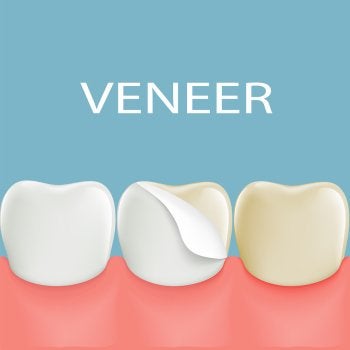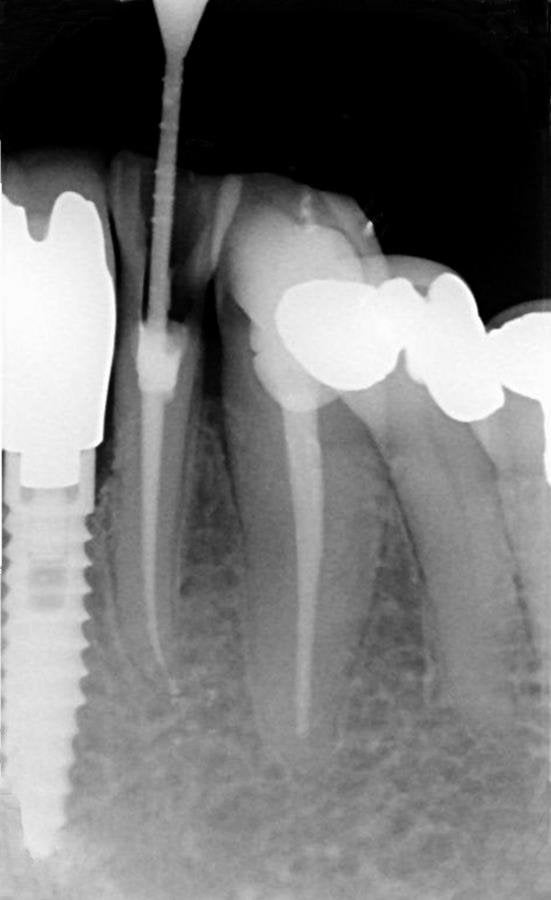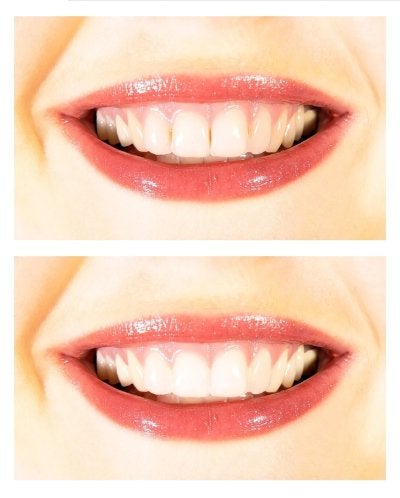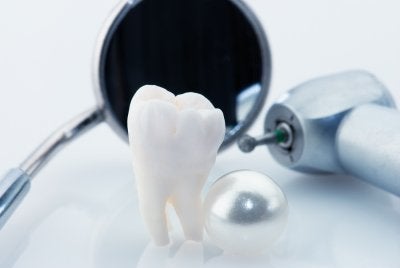-
Comparing Porcelain Veneers and Lumineers
There are so many dental treatments available in modern society that it can be easy to mix some of them up. This is especially true for treatments like porcelain veneers and dental Lumineers in Bel Air, MD, which have a number of elements in common. However, they are not identical treatments and are each more appropriate in certain situations. If you want to decide which of these cosmetic dentistry treatments is right for you, be sure to do some research and talk to your dentist. If you are interested in comparing porcelain veneers and Lumineers, read ahead.

Similarities
From implants and implant-supported bridges to dental bridges and composite fillings, many different types of cosmetic dentistry procedures share a wealth of similarities. However, porcelain veneers and dental Lumineers tend to be particularly easy to confuse. Both of these types of treatments are made with porcelain materials, and they both seek to cover parts of your teeth for a better aesthetic appearance. Veneers and Lumineers can both be used to cover cracks, gaps, and chips as well as stains and discoloration; some patients even use these treatments specifically for cosmetic purposes.
Differences
Although porcelain veneers and dental Lumineers are made from similar materials and designed to treat similar conditions, they are not exactly the same. While porcelain veneers are thin shells for the teeth, dental Lumineers are even thinner. As such, Lumineers are typically used to deal with more minor imperfections than substantial changes. They also require the removal of a smaller portion of the tooth than porcelain veneers. Depending on the thickness of the tooth and the nature of the problem you’d like to correct, one treatment may be more appropriate than the other.
Which Is Right for You
It’s always a good idea to do some research when you are thinking about undergoing a certain type of procedure, but it’s important to talk with your dentist. Make an appointment with your dental office so your dental health professional can perform an evaluation. Porcelain veneers tend to be more applicable to those with more obvious problems, while Lumineers lend themselves to those with thinner teeth.
-
What Are the Signs of a Tooth Abscess?
A tooth abscess can be a very painful condition. In this video, a dental care practitioner will explain some of the common signs and symptoms of an abscessed tooth. When you have an abscess, you may find that your tooth is very sensitive to hot or cold foods. You may also feel a dull, aching pain that throbs in your mouth. A dentist at a general dentistry office in Bel Air will be able to check your tooth for the signs of an abscess.
In the event that you experience an abscess in your tooth, you will want to visit your local dental office right away. With dental care services, you will be able to alleviate your pain and restore your tooth to perfect health. Your dentist will have the tools needed to remove the abscess and improve your overall comfort.
-
Helping Your Kids Avoid Cavities
As a parent, it is important to teach your children proper oral health habits and hygiene. While cavities may be an unavoidable problem for some families, there are steps that you can take to help prevent a dental cavity in your child’s smile. A kid’s dentist in Bel Air will be able to gently clean your child’s teeth and check for the early signs of decay. Your pediatric dentist can also instruct your son or daughter on proper brushing and flossing techniques. To help you avoid the stress of a dental cavity, here is a look at some tips for helping your kids avoid tooth decay.

Brush and Floss Regularly
One of the most effective measures for preventing tooth decay is to encourage your children to brush and floss their teeth regularly. For optimum oral health, your child will need to brush and floss at least twice a day. Young children should be supervised throughout the brushing process. To help prevent cavities, you can also make sure that your kids use toothpaste that contains fluoride.
Eat Nutritious Food
Your child’s diet has a strong correlation with his or her oral health. Very sugary foods, such as candy or soft drinks, will cause harmful bacteria and plaque to build up in your child’s mouth. Over time, a sugar filled diet can cause cavities and other oral health issues. To ensure the proper oral health of your child, you will want to encourage him or her to eat a healthy diet that is filled with fruits, vegetables, and whole grains.
Schedule Dental Visits
Regular trips to the dentist will keep your child’s teeth in great condition. Children of all ages should visit the dentist at least once every six months. The twice yearly dental exam will allow your kids dentist to perform a thorough cleaning and check for any early signs of decay. During your regularly scheduled dentist appointments, your dentist can also make sure that your child is brushing and flossing correctly.
-
Save Your Tooth with a Root Canal
If you have a severely infected tooth, you may need to visit an emergency dentist in Bel Air, MD. An emergency dentist can attempt to save your tooth via a root canal procedure , rather than resorting to a tooth extraction. Root canal procedures are a safe, effective method of emergency dental care, and can prevent your infection from spreading while preserving the integrity of your infected tooth.
Prior to your root canal, your dentist will administer anesthesia. He may also give you a mild sedative to help you relax during the procedure. This will ensure that you remain comfortable and pain free throughout your dental care procedure. Once the anesthesia is in effect, your dentist will drill a small access hole into your infected tooth. He will use special dental tools to remove diseased or infected dental pulp, tooth nerve, and tissue from your tooth.
He will then fill the tooth cavity with medication to completely eradicate your infection. Then, he will seal the access hole with dental putty to prevent bacteria from entering. He may place a dental crown on the tooth to preserve its structural integrity and prevent a broken or chipped tooth.

-
The Importance of a Whiter Smile
When it comes to cosmetic dentistry, teeth whitening in Bel Air, MD , is one of the most popular procedures. Today, professional teeth whitening can lighten your smile by several shades in just one visit to the dentist. Teeth whitening is also completely painless—and more affordable than ever. If you want to improve your oral health and cosmetic appearance, ask your dentist about your teeth whitening options. Keep reading to learn why a whiter smile is so important, including that it improves oral health, boosts self-esteem, and creates a younger appearance.

Improves Oral Health
Most people know that teeth whitening makes you look and feel better. But in addition to its cosmetic dentistry benefits, a white smile also improves your oral health. Whiter teeth deliver a smile that looks happy and healthy. When you invest in teeth whitening, you will feel motivated to take the best care of your smile, including brushing and flossing regularly.
Boosts Self-Esteem
Teeth whitening has given millions of people an essential boost in self-esteem. The teeth can become dark or yellow for many reasons, including as a natural side effect of aging, due to many dental procedures, or as a result of bad habits like smoking cigarettes or drinking coffee. When you whiten your teeth, you no longer need to feel insecure when you laugh, smile, or eat. That means you can enjoy a much more active social life. Whiter teeth can also help you excel at work. With your new confidence, you will feel more comfortable than ever meeting with clients—or asking your boss for a raise.
Creates Younger Appearance
Many people invest in teeth whitening because it is one of the quickest and most affordable ways to look and feel younger. As dentists know, everyone’s teeth are perfectly white and shiny when they are born. Yet, over time, everyone’s teeth also become darker. Instead of letting your smile make you look older than you feel, ask your dentist about your options for teeth whitening. With healthy gums and a bright smile, you are guaranteed to take years off your appearance.
-
What to Expect from Wisdom Teeth Removal
Do you still have your wisdom teeth ? Some people have enough room in their mouths to safely contain these teeth, but most patients need to visit a dentist in Bel Air for wisdom teeth removal. If you need to get your wisdom teeth remove, this blog can help you determine what to expect from the process:
Getting Anesthesia
Your dentist will give you some sort of anesthesia before starting removal so that you can stay comfortable and relaxed during the procedure. Local anesthesia is administered by injection and numbs the area in which it is used. Patients who receive local anesthesia remain awake during the process. Sedation anesthesia is administered through IV and sedates patients for the procedure, though they technically remain awake. General anesthesia can be administered through a face mask or IV and puts patients to sleep, helping them wake back up once the procedure is finished.
patients for the procedure, though they technically remain awake. General anesthesia can be administered through a face mask or IV and puts patients to sleep, helping them wake back up once the procedure is finished. Performing the Procedure
After choosing anesthesia and either numbing your mouth or putting you to sleep, your dentist will be ready to begin the procedure. Many patients get all four wisdom teeth removed during once procedure while others prefer to do multiple procedures because their wisdom teeth have come in at different rates or not all teeth require extraction. Your dentist will make an incision and remove any bone that may be in the way before removing the desired tooth. After cleaning the area, your dentist will stitch it back up and place gauze over it to control bleeding and start the healing process.Recovering After the Procedure
Once you are fully awake, your dentist will send you home with instructions for taking care of the incisions and prescriptions for medication that can help with pain and healing. It is important to rest immediately following the procedure and avoid any strenuous activities for at least a week. You will also be advised to avoid using straws for a week and avoid hard and sticky foods until your incisions have healed. Your dentist can provide more advice for ensuring that your mouth heals properly!
categories
- Uncategorized
- General Dentistry
- Toothache
- Emergency Dentistry
- Family Dentistry
- Receding Gums
- Cosmetic Dentistry
- Veneers
- Gum Disease
- Gingivitis
- Dental Crowns
- Orthodontics
- Dental Implants
- Root Canal
- Wisdom Teeth
- Teeth Whitening
- Your Smile
- Composite Fillings
- Lumineers
- Dentures
- Invisalign
- BrightSmile
- Dental Bridge
- Abscessed Tooth
- Sealants
